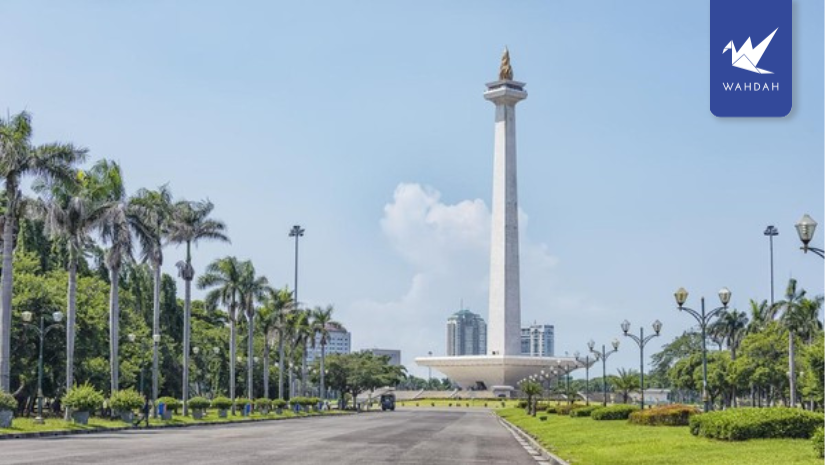How to Avoid Travel Scams for Safe & Smart Travel

You’ve saved up, planned for months, and are finally on that dream vacation.
The last thing you want is to lose money or have your trip ruined by a scammer.
Knowing how to avoid travel scams isn't about being paranoid, it's about being prepared.
This guide cuts through the noise and gives you straightforward, actionable advice to protect yourself.
Let's ensure your memories are of the amazing sights, not the stressful situations.
How to Avoid Travel Scams
A few smart habits before and during your trip can save you a world of trouble.
Check Reviews Before You Book Your Stay
That amazing beachfront villa for a shockingly low price might be a ghost listing.
- What to do: Don't just look at the overall rating. Read recent reviews across multiple platforms. Be wary of properties with no reviews, or reviews that seem generic and fake.
- Red Flag: The host or hotel insists you pay via a direct bank transfer or wire payment to "secure the deal," avoiding the secure payment system of the booking platform.
Spot Fake Travel Deals and Too-Good-To-Be-True Offers
If a deal seems too good to be true, it almost always is. Scammers create fake airline and tour operator websites with irresistible prices to steal your credit card information.
- What to do: Always book directly with the airline, a well-known hotel chain, or a reputable aggregator you trust. Before clicking "book," check the website's URL for slight misspellings of legitimate company names.
Keep Your Money Safe When Paying Online
- What to do: Look for the padlock symbol (🔒) in the browser's address bar and ensure the URL starts with "https://" before entering any payment details.
How to Avoid Pickpockets & Other Travel Scams
Once you arrive, stay alert. How to avoid pickpockets & other travel scams is all about street smarts.
Keep Your Phone and Wallet Safe in Crowded Places
Pickpockets thrive in crowded markets, on packed public transport, and at major tourist attractions.
- What to do: Use a cross-body bag and keep it in front of you. For men, don't keep your wallet in your back pocket. Never place your phone on an outdoor cafe table where a scooter thief can easily grab it.
Watch Out for Common Street Scams and Distractions
Scammers are creative. Be aware of these common tourist scams, especially in popular destinations:
- The "Friendly Local": Someone overly friendly who insists on taking you to a "special" shop or ceremony, where you'll be pressured into buying overpriced goods.
- The "Damaged Rental": A motorbike rental agent claims you caused new damage when returning the vehicle. Always take timestamped photos/videos of the vehicle from every angle before you drive away.
Use Theft-Proof Bags and Money Belts
A small investment can prevent a huge loss.
- What to do: Consider slash-proof bags with locking zippers. A money belt worn under your clothes is perfect for storing extra cash and a passport copy.
How to Avoid Tourist Traps - Ask Locals
Getting scammed isn't just about stolen wallets; it's also about wasted time and money on underwhelming experiences. Learning how to avoid tourist traps enriches your trip.
Read more: How to Travel During Peak Season Without Losing Your Mind (Or Your Budget)
Find Local Restaurants Loved by Residents
If the menu is only in English and has pictures of every dish, you're likely in a tourist trap.
- What to do: Walk just a few blocks away from the main tourist square. Look for places filled with locals. Use apps for maps and filter for "highly rated by locals."
Discover Hidden Gems Away from Crowds
Do a little research before you go to find lesser-known parks, viewpoints, or neighborhoods that offer a more authentic and peaceful experience than the packed main attractions.
Ask Locals for Their Favorite Spots
The best advice often comes from someone who lives there. Don't be shy! Ask your hotel concierge, a friendly shopkeeper, or your driver where they like to eat or hang out.
Travel Stress-Free with WAHDAH Car Rental
One of the best ways to avoid transportation scams and tourist traps is with the freedom of your own car. With WAHDAH, you know exactly what you're getting.
Book Directly on Our Safe Website
Avoid fake rental agencies by booking securely through our official WAHDAH platform.
Know Your Full Cost with No Surprise Fees
We offer transparent, all-inclusive pricing. What you see is what you pay, with no surprise charges for insurance or mileage.
Get Well-Maintained, Reliable Cars
Drive with confidence in our safe, clean, and regularly serviced vehicles, eliminating the "damaged rental" scam risk.
Reserve Your Safe WAHDAH Car Today!
How to Avoid Travel Scams FAQ
How to avoid scams while traveling?
Stay vigilant by researching common scams at your destination, using reputable services, and trusting your instincts. Always keep your valuables secure and be wary of deals that seem too good to be true.
How to avoid getting scammed by travel agents?
Book only with licensed, well-reviewed agencies. Avoid agents who pressure you to pay with wire transfers or gift cards, and always get everything in writing before paying.
How can you tell if you are chatting with a scammer?
Scammers often create a false sense of urgency, have poor grammar, avoid video calls, and ask for personal information or payment through unusual methods.
How to not get scammed abroad?
Use ATMs inside banks, be cautious with public Wi-Fi, don't flash expensive items, and learn to politely but firmly say "no" to unsolicited offers or help.
What is the 1-5 rule in travelling?
While not an official rule, a good principle is: For every 1 hour of transit (flight, long drive), plan to stay at least 5 days in that destination. This encourages slower, more mindful travel.
Can a scammer get into your bank account with your phone number?
Potentially, yes, through "SIM swapping." Protect yourself by using two-factor authentication that doesn't rely solely on SMS and avoiding sharing your number unnecessarily.
Can a scammer access your phone if you answer a call?
Typically, no. Just answering a call doesn't give them access. However, do not follow any instructions to dial numbers or download apps, as this could be part of a scam.









 English
English
 Indonesia
Indonesia
 Bahasa Malaysia
Bahasa Malaysia Singapore
Singapore
